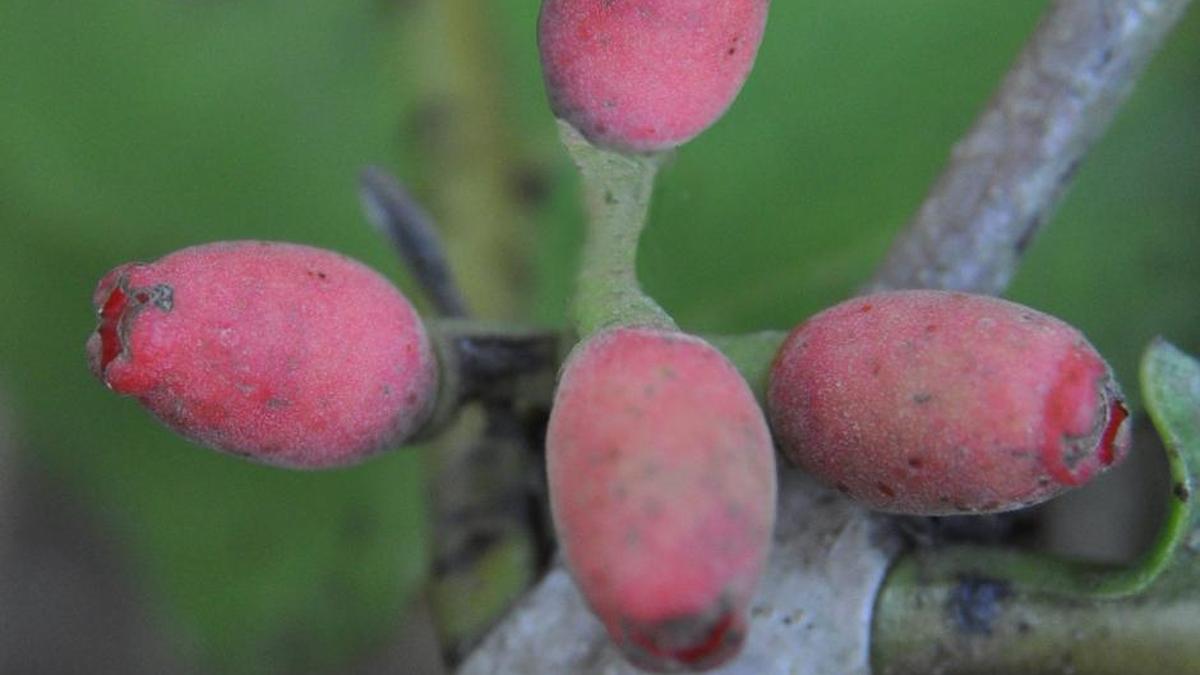
Two biogeographic hotspots in India yield two new plant discoveries
The Hindu
Indian botanists discover two new plant species in Andaman and Arunachal Pradesh, highlighting biodiversity and conservation concerns.
Indian botanists and researchers have discovered two new species of plants from two bio-geographic hotspots of the country the Andaman and Nicobar islands and Arunachal Pradesh.
While a team led by scientist Lal Ji Singh, discovered aerial stem-parasitic flowering plant species Dendrophthoe longensis from the Long Islands of middle Andamans the other discovery by a team led by scientist Krishna Chowlu, is a new herbaceous plant species from Arunachal Pradesh
The aerial stem-parasitic flowering plant species Dendrophthoe longensis was found on the specific host plant - Mango, Mangifera indica in the edge of evergreen forests, low land areas of tropical forests. The species is from the family Mistletoe - a group of hemi-parasitic flowering plants which exhibit a suite of remarkable adaptations associated with the hemi-parasitic habitat.
“The species is sparsely scattered and confined to a few localities of Long Island. Its distribution was recorded only from Sigmendera, Lalaji Bay and near the forest guest house of Long Island. Larvae bore into entire plant parts (young shoots, leaves, inflorescence, flowers, young fruits) causing severe damage and leading to death of this hemi-parasitic mistletoe species,” said Dr. Singh, who is head of Andaman and Nicobar Regional Centre of Botanical Survey of India.
Conservation status of the new species is assessed as “Endangered” based on the IUCN categories and criteria (IUCN, 2020). Indian Dendrophthoe are represented by nine species among which four are from Andaman and Nicobar Islands of which two species are endemic to the region.
“Aerial stem-parasitic flowering mistletoe plants are under great pressure due to destruction of natural habitat and other anthropogenic activities especially timber harvesting of host tree species, developmental works which are causing population declines worldwide,” Dr. Singh added. The details of the discovery have been published in an International Journal of Botanical Taxonomy and Geobotany.
The other discovery Petrocosmea arunachalense is also from a remote but bio-geographic hot spot - Mandla region of the West Kameng district in Arunachal Pradesh. “It is a very very small herb and the researchers located it inside a cave indicating that the species requires less sunlight This newly discovered species Petrocosmea arunachalense is a significant addition to the plant family Gesneriaceae,” Dr. Chowlu said.

The girl, who was admitted to Aster CMI Hospital with alarming breathlessness and significant pallor, was diagnosed with Wegener’s Granulomatosis (now known as Granulomatosis with Polyangiitis or GPA), a rare autoimmune condition that causes spontaneous bleeding in the lungs, leading to acute respiratory failure.

ACB files case against IPS officer N. Sanjay in Andhra Pradesh. The official is accused of manipulating the tender processes for awarding contract for development and maintenance of AGNI-NOC portal, and conducting awareness meetings for SC/STs. It is alleged that the total value of properties stolen, or involved in the case is estimated at ₹1,75,86,600.









